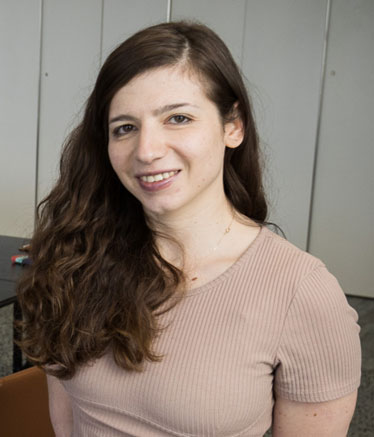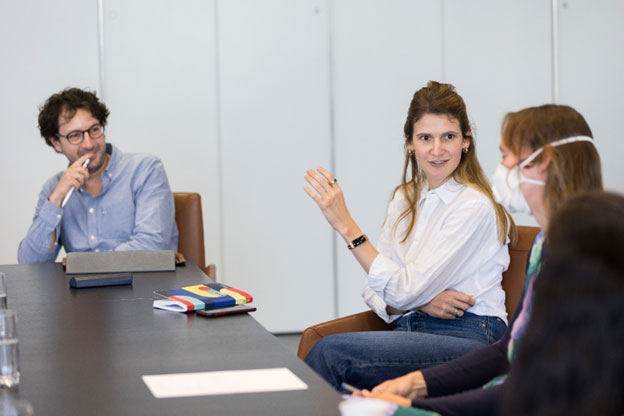Scheme for supporting FBE new parents
What is SSNP?
The Scheme for Supporting FBE New Parents (SSNP) aims for:
- Improving the experience (e.g., health, wellbeing, work-life balance, career progression) of FBE staff who are new parents*
- Effectively attracting and retaining FBE staff
- Improving gender equality and increasing woman representation among academics
- Enhancing a culture of diversity and inclusion at work and beyond
SSNP supports FBE new parents under three pillar initiatives:
- Support/Workshops/Networking
- Information hub that provides information relating to parental leave and beyond
- Work relief for FBE academics who are new parents
- Taken within one year of the birth if the new parent academic does not take parental leave or taken within one year after returning to work following parental leave.
Find out more about SSNP (staff login required)
Join the FBE Parents' Support Group now.
* A new parent: inclusive of all forms of a new parenthood, e.g., a new parent of an adopted/fostered child, a birth child or a child born through a surrogacy arrangement.
Information relating to parental leave and beyond
- For parents who need some private space on campus, there are a number of parent rooms/breastfeeding rooms available to current students and staff.
- Early Childhood Education Services
- The University of Melbourne provides long day care and kindergarten programs for children of staff, students, and alumni, as well as children from the wider community. The programs are offered at the Early Learning Centre in Abbotsford, and at the Queensberry Children’s Centre and Swanston Street Children’s Centre in Parkville.
- FROEBEL Australia has been selected by the University of Melbourne to develop, build, and operate the new Early Learning Centre at the Melbourne Connect innovation precinct which opened in January 2022.
For important information in relation to HR policies and information for parental leave, please visit the staff SSNP page (staff login required)
Case studies

Dr Zhengyu Li, Management and Marketing
Dr Zhengyu Li joined the Faculty in February 2023, shortly after the birth of his child. “I appreciate that I was still eligible to apply for the SSNP program,” he says, “despite commencing in the Department of Management and Marketing after becoming a parent – both the Head of Department and the Assistant Dean supported my application for the program.” As a new member of the Department, Zhengyu was eligible for some teaching relief, and was keen to teach from the get-go: “I wanted to make sure that I was in the classroom from the outset, so rather than taking further teaching relief, the SSNP program facilitated my not teaching evening classes. This meant that I was able to spend more time with my family at home, which was invaluable.” Zhengyu also received research funding which he used to fund participation at international conferences, and the purchase of datasets: “Being able to reconnect with the research community after lockdown has been excellent,” says Zhengyu.

Dr Marina Gertsberg, Finance
“The SSNP program is unique and valuable,” says Dr Marina Gertsberg. “It’s especially helpful for staff who have recently joined the University and thus might not qualify for other sorts of parental leave – the program provides workload modifications and relief that really benefit new parents.” Marina made use of two components of the program, teaching relief and funding for research support. “As an early-career academic, parenting responsibilities can be a significant career interruption, and the program provides parents with time through teaching relief and with money for research, both of which help to soften career impacts.”
Dr Alexandra de Gendre, Economics, and Dr Nicolas Salamanca Acosta, Melbourne Institute
Dr Alexandra de Gendre is a McKenzie Post-Doctoral Research Fellow in the Department of Economics: “As a Fellow, I have no teaching or service expectations, so I made use of the SSNP program by drawing on research funding to hire a research assistant to support several ongoing research projects,” she says. Her partner, Dr Nicolas Salamanca Acosta, a Senior Research Fellow at the Melbourne Institute, was able to use SSNP funding to manage his contractual research commitments. “A great benefit of the SSNP program is that there is flexibility to use funding in ways that are bespoke to the recipient,” says Nicolas. “My workload involves service, academic research, and contract research – contract research can be quite demanding to establish, but I was able to use SSNP funding to make those expectations more manageable.”
Both Alexandra and Nicolas have been leading the establishment of the parenting support group for SSNP participants. “The idea is to have a place for new parents to talk about expecting a child, being a new parent, and that sort of thing,” says Alexandra. “People have different attitudes and levels of comfort with discussing parenting, and we have aimed to make the support group a safe and welcoming space.”
“The SSNP program is a fantastic initiative, and it was great to have access to this sort of support when we had our child,” says Nicolas. “As academics and new parents, there are many demands on our time and attention – SSNP has helped us to focus on and prioritize our research projects and balance them with parenting. It’s been very beneficial.”

page updated 1 February 2024